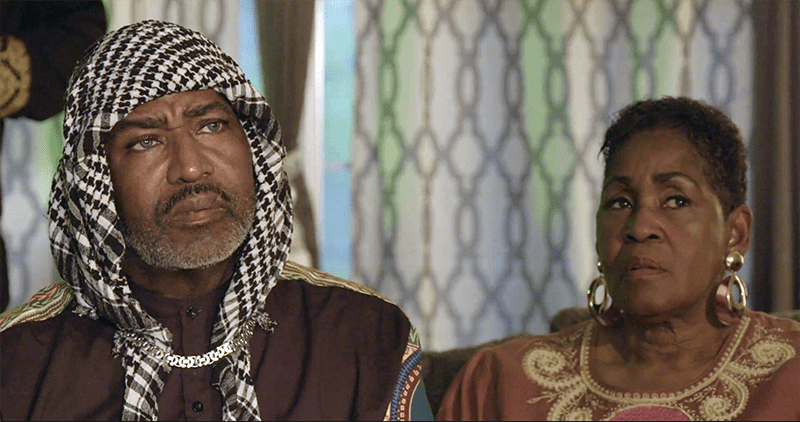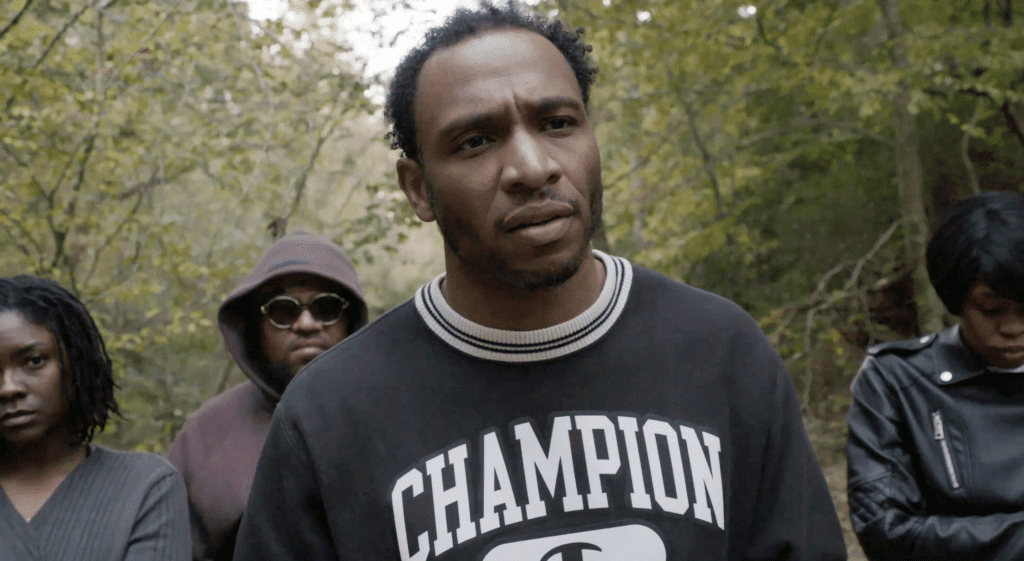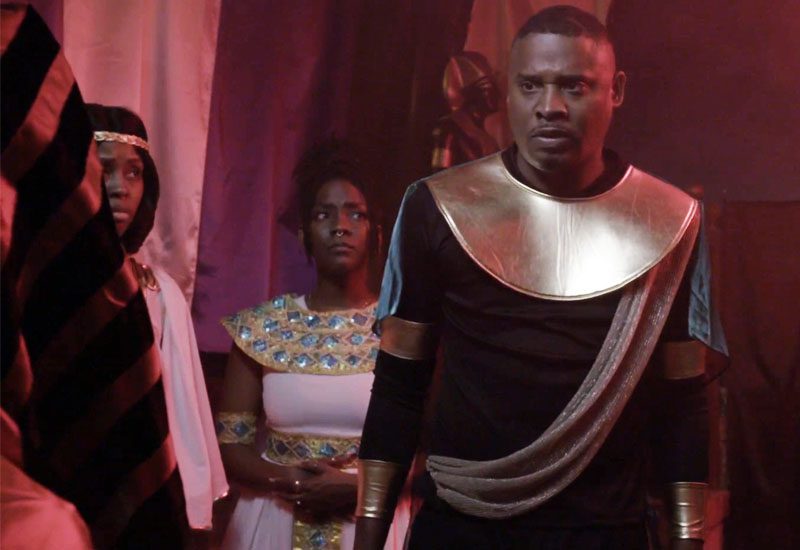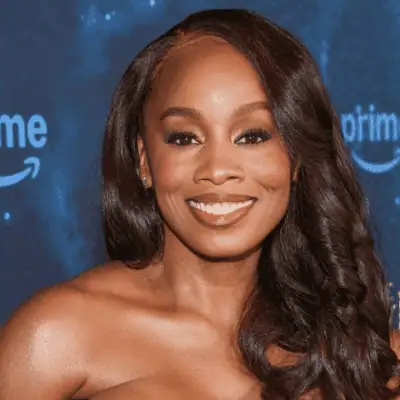Warning: This review contains spoilers for the final three episodes of ‘Silver & Gold’s inaugural season. Watch the series on JARO Media.
“Alonge Hawes is either a genius or batshit crazy!”
Were my initial thoughts as the credits for the 10th and final episode of Silver & Gold season 1 scrolled before my eyes. What had started as a cool and charming heist series featuring four lovable vagabonds in their quest to steal, plunder, and pilfer any and everything they could get their hands on had morphed into a fantasy series featuring magical figurines, Egyptian Gods, and the mystical power of fate & destiny.
I admit, though there had been hints throughout the first seven or so episodes that Silver & Gold had some grand plot-related trick up its sleeve, I wasn’t altogether prepared for some of the revelations the final three episodes unveiled, and maybe that’s a good thing. It’s refreshing to see a series take such a bold creative leap in its storytelling, with not one ounce of hesitation as to how the audience might react. I must say that the way in which these episodes went about showing us what Silver & Gold’s true identity is was both thrilling and genuinely fun, even if somewhat jarring.
The festivities start with the 8th episode, titled “The Black Blade in The Hour Of Reckoning.” Here, we begin with a flashback to the time when Bahiya (Brittaney Traylor), Aasim (Joshua Quinn), Charles (Quentin Williams), and Ramses (Alonge Hawes) all worked together as members of the organization/cult Uhuru. Their mission: infiltrate a rich guy’s house and steal a Fragment. Silver & Gold has been teasing the importance of these Fragments for a while now, and it’s good to see that after several stand-alone episodes we’re going to finally get some answers as to why Uhuru wants them so badly.

The flashback sequence works well, bolstered by the chemistry between Aasim, Bahiya, and Charles. Ramses pops up utilizing the world’s most deadly security blanket (his sword. No, really, check out how many scenes in the series he’s actually shown WITHOUT carrying his sword around. Linus was less co-dependent) to bail Charles out of a jam and then we’re off to the races. Bahiya and Charles get a good ole fashioned dressing down from Noble Kabaka (a regal but fiery Eduardo Bryant, in his best scene of the series) about their recklessness in obtaining the Fragment, but ultimately forgives them upon Bahiya presenting the figurine to him.
Bahiya, as the audience surrogate, demands to know exactly WHY these Fragments are so damn important, but before we get the answer, we jump back to the present, where it is revealed that of the 16 Fragments, Ramses has managed to acquire 15 of them. Bahiya wants to destroy the Fragment her and Charles have in their possession, but Charles disagrees, as he has a grander plan. Steal the 15 that Ramses has and ransom them for a large sum of money, so they can pay the debts they owe to partners-in-crime Cierra (Shani Hawes) and Sosa (Roberto Cruz Jr.) and disappear somewhere safe.
Flashing back again, Uhuru elders Amunet (Pantheah Hawes), Akila (Roxzane T. Mims), and Zahra (Claudette Thomason) finally explain what the Fragments are. They represent a source of memory that connects Black people to their ancestral legacy as the children of the Egyptian God, Geb. The more Fragments Uhuru gather, the deeper they can tap into Geb’s power, which allows them supernatural abilities. They plan to use these powers to unite Black people the world over for a “second chance” at glory and nobility.
When Bahiya invokes skepticism at this “fairy tale,” she quickly receives demonstration that the story is indeed real, and these women aren’t to be messed with. With this revelation, we jump back into the present, where Cierra and Sosa are hesitant to involve themselves in Uhuru’s shenanigans until Charles and Bahiya promise them that it will be financially worth their while. We jump to another flashback that showcases the Ramses/Charles/Bahiya love-triangle. Recall the opening slogan during the credits sequence of every episode? “Sometimes love IS the crime.” Well, here we finally get some payoff to that logline as we see that Bahiya and Ramses’ past relationship is tempered by the fact that they have little in common. Where Ramses is stoic, Bahiya is lively. Where Ramses blindly follows orders, Bahiya is inquisitive. Ramses’ charm lies in his structured demeanor, whereas Bahiya’s glamour lies in her free-spirited personality.
There’s a scene which highlights all of this as Ramses is given orders to kill a senior member of Uhuru who commits the unforgivable crime of hiding a Fragment from Noble Kabaka, proclaiming that one man shouldn’t have the power to rule as a God. You can see the pain and conflict in Ramses’ face as he dutifully carries out his orders. This Is juxtaposed with Bahiya and Charles dancing seductively with one another, having the time of their lives, connecting in a way that Ramses cannot or WILL NOT allow himself to do with anyone. Finally, we come back to the present for the episode’s climax, where the crew infiltrate Uhuru’s headquarters to relieve them of the Fragments, only, Ramses anticipated this; and is waiting for Charles so that they may engage in one final duel.
Ramses claims he’s over Bahiya and will kill either or both of them to obtain the final Fragment, but even in his delivery, you get the sense that he’s still a jealous boyfriend mad that his BFF ran off with the love of his life and desperately wants a pissing match to prove he’s the better man. Swords drawn, the two old friends clash in a joust that carries with it the stakes of not just the key to ruling as an all-powerful deity, but for one woman’s heart.
And THIS, ladies and gentlemen, is where things get weird.
As Ramses and Charles fight, the elder Uhuru women begin an incantation, summoning the power of the Fragments. Cierra, Sosa, and Bahiya grab their heads in pain and collapse. Ramses seems to get the better of Charles and is about to deliver the killing blow when a burst of white light appears out of nowhere and seemingly TRANSPORTS THE FIVE OF THEM TO ANCIENT EGYPT WHERE CHARLES IS NOW A PHARAOH! Yes people, you read that right. The 8th episode ends with the mother of all cliff hangers as Charles looks out in wonder onto the kingdom of Egypt! You have no idea how long my mouth was agape in shock as I ran back the last five or so minutes of the episode to make sure I hadn’t missed anything. Beyond it being a cool visual sequence (props to Joshua Dennard, the series cinematographer), the shock factor of the ending left me in awe. But cool visuals and a cliffhanger ending won’t work in hindsight if the next episode doesn’t stick the landing.
Thankfully, the 9th episode “The Children of Geb”, very much sticks the landing. After another cool intro where the story of the God Geb is told, we see Charles (now known as Osiris), Bahiya (Isis), Cierra (Satet), Sosa (Khnum), and Ramses (Set) in Ancient Egypt debating on whether to continue waging war with an invading enemy or sue for peace. Set, as captain of Pharaoh Osiris’s army, wants to continue fighting and grind the enemy’s entire army to dust. Satet and Khnum want peace, whilst Osiris is undecided. It is Isis, perhaps carrying the greatest pain attributed to the war, who sways the balance.
Convincing Osiris to give peace a chance angers her husband, Set (this guy just doesn’t seem fated to have a happy ending no matter the century). In a scene that perhaps is indicative of the inevitability of destiny, Osiris and Isis give in to their mutual attraction to one another and make love in the throne room, while a devastated Set secretly watches. These actions lead to brutal, devastating consequences that make episode 9 a parable of sorts. It seems that the five of them were sent to relive their pasts so that they could learn a lesson regarding their present and future.
And to that end, The Children of Geb is an affecting, beautifully written, and powerfully filmed episode that is probably my favorite of the series. Kudos to Alonge Hawes and the rest of the cast for also speaking convincingly in a foreign language. Episode 9 is told almost entirely with subtitles as the cast speak in ancient Egyptian, a nice touch, and everyone does a great job. The props were also nicely done and the fight scene was thrilling and tension-filled. The episode ends on yet another cliff hanger as everyone in the gang is able to get away except for Bahiya, who remains in the clutches of Uhuru for the time being. Will Charles be able to save her? Will Ramses realize that, apparently after a millennia of pining, that she’s just not that into him? Will Cierra and Sosa EVER get paid?

The 10th and final episode, “The Ballad Of Moon & Stars,” looks to answer all of these questions and more. Upon awakening 48 hours later, Bahiya is greeted by her surrogate mother-figure Amunet, who urges her to spill it on what she experienced in her former life. Bahiya refuses to tell, leading to some slight torture. Amunet finally takes her leave, with the promise that Ramses won’t be so gentle with her. Bahiya, unafraid, resolves to face Ramses while several hours later, Charles awakens to find that his crew members have treated his wounds and are awaiting his expertise in coming up with a plan to save Bahiya. It seems that Sosa and Cierra are willing to put payment to the side to assist Charles, showing that what was once a partnership born out of mutual greed has become a real friendship between the four of them.
Heartened by this showing of comraderie, Charles comes up with his coolest and most ambitious plan yet, which involves soliciting the services of several characters we met throughout the season. Meanwhile, Bahiya finally confronts Ramses and tells him the truth, that her heart belongs to Charles and only Charles, and that Ramses’ blind devotion to Uhuru’s mission has made him cold and inhumane.
This was an excellent scene featuring some stellar acting from both Brittaney Traylor and Alonge Hawes. You can see the hurt and sense of betrayal plastered all over Ramses’ face as he struggles remain apathetic. In contrast, you can see the resoluteness and determination flash across Bahiya’s eyes as she finally lets Ramses have it. His inability to think for himself is what ultimately lost him everyone he loves, and that revelation seems to melt away all pretense of him being this indomitable badass. Refusing to concede, Ramses tells Bahiya that he knows Charles will come riding on a white horse to save her and that when he does, he’ll kill him and lay claim to the final Fragment. At this point we understand his threat is less about ruling as a God or uniting Black people as it is getting revenge.
It is this thirst for vengeance that ultimately blinds Ramses, and Charles’s plan is pulled off without a hitch. We see the return of some fan favorites from previous episodes, including Parker Benjamin (an engaging and hilarious Alex Patterson), Brilliance Meijin (Joshua Dennard), and Morrigan Chambers (the delightful Angela Van Tassel), who assist (for a price, of course) in infiltrating Uhuru’s stronghold, saving Bahiya, and taking Ramses hostage. Aiyden Booker (Julian Robinson) also pops up to earn a little get-back from Ramses and take both he and Bahiya to where Charles, Cierra, and Sosa have been waiting.
Here, Ramses and Charles have their final bout. Only instead of a sword fight, it’s a duel of philosophies, as Charles tells Ramses that death and destruction isn’t the answer while Ramses shoots back that the want for peace is what doomed them in Egypt centuries ago. Both men make good points, and ultimately Charles decides to let fate be the judge as he allows Ramses to bring all the Fragments together to see which of them is correct. When Ramses places the final Fragment in its slot, the Goddess Renenutet (Lasada Lloyd), wife of Geb, appears. She judges Ramses first and, seeing that his soul is twisted in anger and hate, finds him unworthy (which is apparently extremely painful) and as Ramses collapses, seemingly dead, Charles steps forward and is judged meritorious.
Renenutet gifts Charles with a bracelet with instructions to “correct the mistakes of the past, learn from the history of the present, and the future will forge itself.” As she disappears, Charles informs the group that the bracelet he’s wearing bears hieroglyphs that form part of a map to the door that guards utopia. This sets up Silver & Gold for a potential second season of adventures, and as Charles winks at the camera one final time, I couldn’t help but wonder what those adventures could merit.
Besides an after-credits scene that I will not spoil, this is the culmination of Silver & Gold’s first season. And as I type, I keep coming back to my initial impression of the finale: is Alonge Hawes a genius for combining two, maybe three different genres into one series and actually pulling off a fun, exhilarating roller coaster of a season, or is he crazy and I just happen to love his version of cinematic stir-fry? The dedication the cast has shown to Alonge’s vision is impressive. What could have come off campy instead comes off earnest, and what could have been corny comes off fervent.
I really came to like the ensemble and how they balance one another out. I also found the show’s mythology intriguing and well written. The highest compliments I can give Silver & Gold is that I hope we are afforded a second season to see where Alonge takes this likable cast and what strange capers he’ll dream up next.
So, to answer the question on whether the man is genius or kooky, going by the fact that I had so much fun living in his cinematic playground…
Does it even matter?
RATING
Writing/Directing- 4.5/5 Stars
Performances- 4.5/5 Stars
Cinematography- 4.5/5 Stars
Audio- 3.5/Stars
Editing- 4/5 Stars
Watch the full first season of ‘Silver & Gold’ on JARO Media.
As an independent magazine with a small team, we rely on the support of our readers to keep JARO’s content free and accessible to everyone. Please support our ability to continue delivering the best of the African Diaspora with a donation as little as $1. Thank you!






